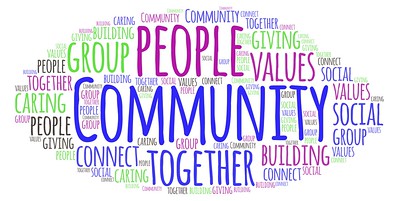Do you have cabin fever? Winter can be rough for several reasons and March can be especially difficult because spring seems so close yet so far away. Of course, COVID can also add to isolation and feelings of loneliness. Today we’re going to explore friendly caller programs, virtual support groups, and what activities the different senior centers are offering.
Friendly Caller Programs
A friendly caller program connects older community members with volunteers or staff members who can talk to them on a weekly or monthly basis.
- Catholic Charities Washtenaw County offers a friendly caller program. Call (734) 971-9781 and press “8” for Senior Services.
- JFS WISE Comfort Line– Call (734) 769-0209
- Saline Area Senior Center Friendly Caller Program- click here to sign up.
- Turner Senior Wellness Program Connected Companions- If you are interested in volunteering or participating to get regular friendly calls, please call the office at (734) 998-9353 or email [email protected].
Senior Centers
- Ann Arbor Senior Center– offering limited in-person activities. Check the website or sign up for their newsletter for updates.
- Chelsea Senior Center– Most in-person events are back (including lunch café). Masks required.
- Dexter Senior Center– Most classes and activities are back in-person. Lunch café is still on hold. Masks and vaccines required.
- WISE @ The Jewish Community Center– Lunch café and activities are back in-person.
- Manchester Area Seniors Council– Lunch café and some activities are operating in-person.
- Milan Seniors for Healthy Living– Lunch café and activities are back in-person.
- Northfield Township Community/Senior Center– Center and lunch café program closed until further notice.
- Saline Area Senior Center– Offers in-person and hybrid activities (both in person and online). Masks required at the center.
- Turner Senior Wellness Program– Offers lunch café, plus in-person and hybrid activities (both in person and online). Masks required.
- Ypsilanti Senior Center– Lunch café and some activities are operating in-person.
- Well Connected offers activities, education, support groups, and friendly conversation over the phone or online (visit online or call 877-797-7299).
Memory Cafes
- Connections Café (Chelsea Senior Center)- No cost. For more information or to register call CSC Office. Registration appreciated.
Virtual Support Groups
- Caregiver Conversations (JFS)- Meets monthly on Thursdays from 3:00-4:30pm (virtual). Register online. The group is limited to 10 participants.
- Virtual Statewide Veteran Caregivers and Caregivers of Veterans Support Group (Alzheimer’s Association)- Meets the 2nd Friday of each month, 10:30 – 11:30 a.m. To register, please call (800) 272-3900 or email [email protected]
- Virtual Statewise Grief After Dementia Support Group (Alzheimer’s Association/Hospice of Michigan)- Meets the 2nd Tuesday of each month, 6:30-7:30pm. To register, please call (800) 272-3900 or email [email protected]
- Turner Geriatric Clinic is offering a virtual grief support group for older adults or family members of older adults affected by loss due to COVID-19 (via Zoom/phone). Call (734) 764-2556 for more information.
- Arbor Hospice offers a variety of grief-related virtual support groups and activities. Click here for more information.
In-Person Groups
- Conversation Club (Saline Area Senior Center)- Meets Wednesdays from 9:30-11am. Weekly drop-in conversations on current events, science, and more. No cost.
- Solo Seniors (Milan Seniors for Healthy Living)- Meets the 4th Wednesday of every month at 11:00 am. This informal peer support group meets to discuss the challenges of living alone, share resources, and be a support to each other.
Virtual Classes
- GetSetup teaches older adults how to use videoconferencing, telemedicine, and other technology.
- Senior Planet offers a wide variety of online courses and activities.
- Osher Lifelong Learning Institute (OLLI) offers online courses for a small fee. Visit their website for more information.
Drive Thru Events
- The Ann Arbor Senior Center has a different drive thru event each month. Visit their website or Facebook page for more information.
To keep up to date on programs and events in the community, subscribe to senior center newsletters or visit the Ahead of the Curve Community Calendar.






